Though they
have been with us for a while now, the Elder Scrolls games gained a huge amount
of prestige with their 2011 release of Skyrim, the fifth instalment in the saga
and one of the most immersive and beautifully rendered games I have ever
played. These games are all set within the same world, though they have each
tended to restrict the experience to a single region of this wider world, as
well as allowing many years to have passed within the world between each game.
Something
which has remained consistent, yet relatively in the background, throughout the
games is the inclusion of a religious element, as is to be expected when a huge
selling point for the games is cultural immersion. I find religion a
fascinating topic and this applies equally to the real world religions and to religion
as they it is represented in fiction and thus I was interested in thinking
about how the religions within the Elder Scrolls are constructed, what elements
from history have been taken and been made fictional as well as some of the
commentary that one might be able to take from certain readings of them.
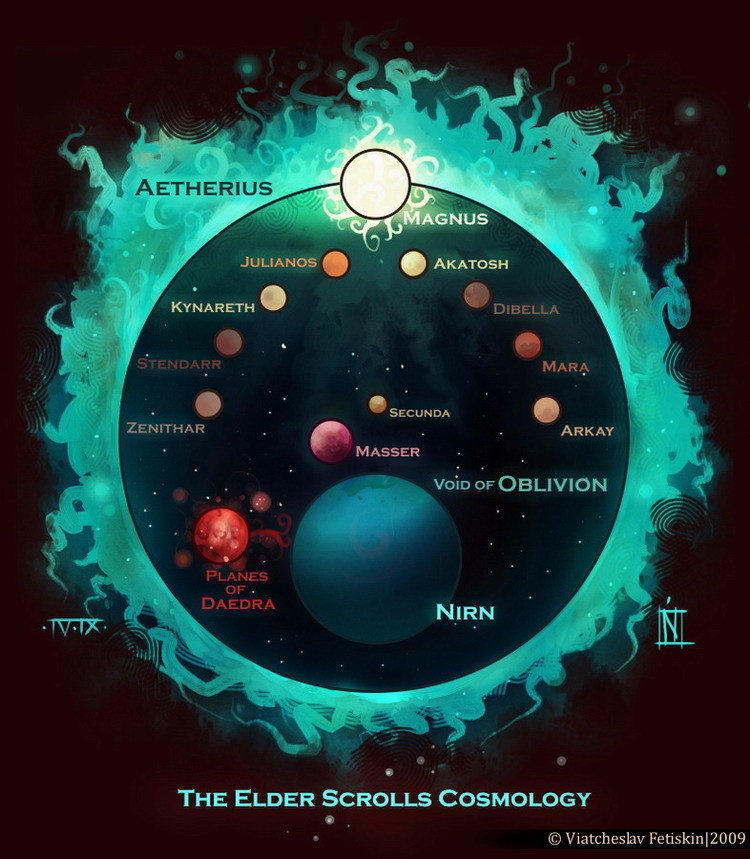 |
| Image posted by Illith-Anthonar |
Aedra and Daedra
The two primary
religious groups within the more recent games are the followers of the Divines
(or the Aedra) and the cultists of the Daedric Princes (the Daedra). From the
outset, we can note that the former is an organised religion, with Churches and
formal temples and clerical hierarchies, as well as formalised religious texts
and practices, whereas the latter (for the most part) are portrayed as being
less strict, more wild and informal.
Without much
difficulty, these can map onto Christianity and the amorphous Paganism against
which it is often framed, a reading which is further supported by the former’s
view that the latter are dangerous and often deserving of death for their
practices. Interestingly, Daedra worship links nicely with the concept of
Paganism as neither of them can be clearly defined into a neat little box. Just
as the term Pagan can cover a vast range of cultures and religious /
philosophical positions, there are many Daedric princes, each with very
different practices and attitudes, and whilst we can argue that there are common
threads running between the Daedra, there are also similar commonalities
running through various forms of Paganism, otherwise the term would have no
meaning whatsoever.
Furthermore,
one can clearly see parallels between Christianity and the Aedra, as these Gods
very rarely appear in the game (and when they do, they are not so much
characters as spectacles), which reflects the traditional Christian conception
of the way in which Gods interacts with the world as being either as a
background influence, only very rarely making his will directly manifest in the
form of miracles. This conversely applies to the Daedra, who directly speak to mortals and who take an overt and active interest in the moral world, which is much more in line with certain Pagan attitudes towards the Gods, such as the attitudes which are held by the Greeks and which are made evident in Homer's Iliad and Odyssey.
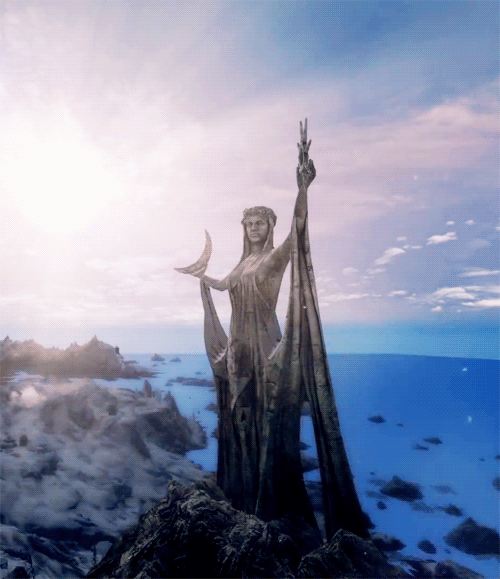 |
| Image posted by FusRoDamnGurl |
The relationship between the followers of the Aedra and the Daedric cultists also mirrors the historical relationship between Christianity and Paganism. In short, the two are at odds, though they are evidently not complete opposites, with elements mingling in a grey, in between area and they evidently share a history. Often, followers of the Daedra are tolerated, if not welcomed, though they are seen as being more primitive. Though there is obvious hostility, for a branch of the church, the Vigilants of Stendarr, exist to deal out justice, which specifically includes the hunting of Daedra and their followers. Evidently, this is a reference to the concept of a religious inquisition, often used not to hunt those of other faiths, but all those who do not uphold the faith in question.
Traditionally, the God of Christianity is conceived of as a perfect being, one who is associated with any concept which can be deemed noble. Likewise, the domains of the Nine Divines are all concerned with lofty concepts such as Time, Love, Logic, Work, Nature etc. These are transcendent Gods, whose followers are focused on a realm beyond their own. On the other hand, the Daedric princes rule over domains such as Conspiracy, the Hunt, Madness, the Outcast, Domination, etc. We can see clearly that they share some concepts (there is an Aedra of nature (Kynareth) and a Daedra of the Hunt (Hircine)), though they cover these in different ways. Kynareth promotes the beauty of nature and unity with it, whereas Hircine is concentrated in the beastial nature of all creatures and the chaos within the wilderness. The trend suggests that the Daedric princes are far more mortal, representing the more practical elements of the world, in all its ugliness rather than the transcendental concepts, though this is not to say that the two are mutually exclusive.
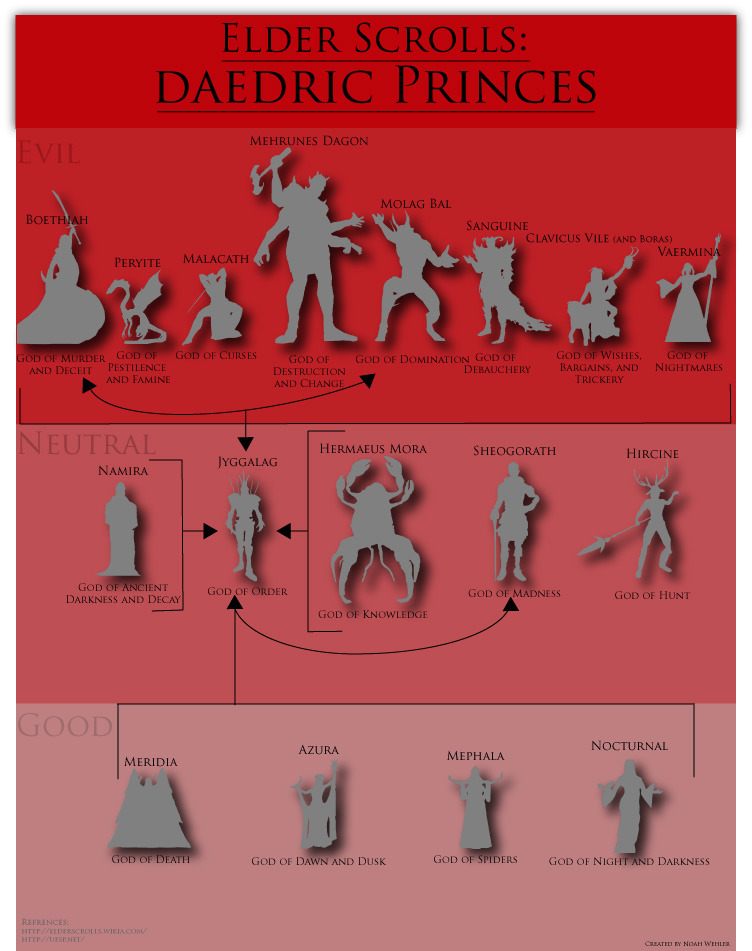 |
| Image posted by Stuff That Art Does |
The Meaning of Godhood
Interestingly, the Elder Scrolls series can be used to allow us to reflect on what actually makes a God. At the centre of this discussion are the Tribunal, a group of three, ancient elves who managed to obtain immortality and great power through manipulating an artefact known as the Heart of Lorkhan, which was taken from Lorkhan, an Aedra himself, for tricking the other Gods into creating the world. Essentially, through harvesting the divine energy left within the heart, the three became "living Gods".
Ultimately, however, throughout the course of Morrowind's central plot, the three are ultimately stripped of their powers and their religious following, with one of their number, Vivec, even suggesting that they should be considered Saints and Heroes rather than Gods in their own right.
What is suggested here is that, in spite of their using a source of power that is linked to an Aedra and in spite of their extensive power and immortality, the Tribunal are not truly Gods. A God is not constituted by his power, or by his following, but by his very essence and nature. The Aedra are Gods because they are powerful spiritual beings whose power was used to create the world and all living things within it. Both their nature and their actions give them the title, not their power.
Thus, whilst the Daedric princes are also powerful, they cannot be rightly called Gods. Sure, they are also spiritual beings, but they have no connection to the mortal world, and a rumoured to have been born from a force which hates it with a deep-rooted passion. They, like the Tribunal, have power and a following, but they cannot be correctly called Gods.
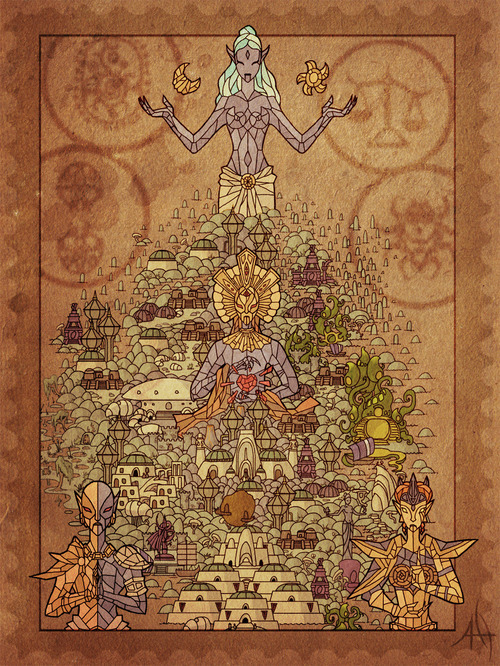 |
| Image posted by C0nn3ct |
The Moth Priests
A final point I wish to raise is in connection with the Moth Priests. For a series named the Elder Scrolls, the Scrolls themselves, which are used to contain prophecies, rarely seem to surface in many of the plot lines. The nature of these scrolls is interesting, as they are supposed to represent the idea of divine knowledge which, whilst it can be somewhat understood, can never be fully comprehended and which costs much. In order to read the scrolls, one must prepare in accordance with the rituals of the Moth Priests, with those who do not are unable to read the scrolls and suffer for the attempt. Yet even with the utmost preparation, reading the scrolls ultimately results in blindness.
The initial, and by no means wrong, reading lends itself to the idea that there exists knowledge outside of the realm of mortals that we cannot freely or properly understand. It highlights that knowledge comes with a price and that there are some things which will always be beyond our ken, the attempt to bring them into our understand results in a terrible loss.
However, another reading could argue that what is truly being represented is the idea that fervent devotion to a cause or to an idea, such as an organised religion or a personal philosophy, can result in an inability to clearly perceive the world around you. Through their academic devotion to the scrolls, the Moth Priests are ultimately unable to actually interact with the world in which they live, due to the price they have paid. So fixated on the future, on the prophecies within the scrolls, they become estranged from the present.
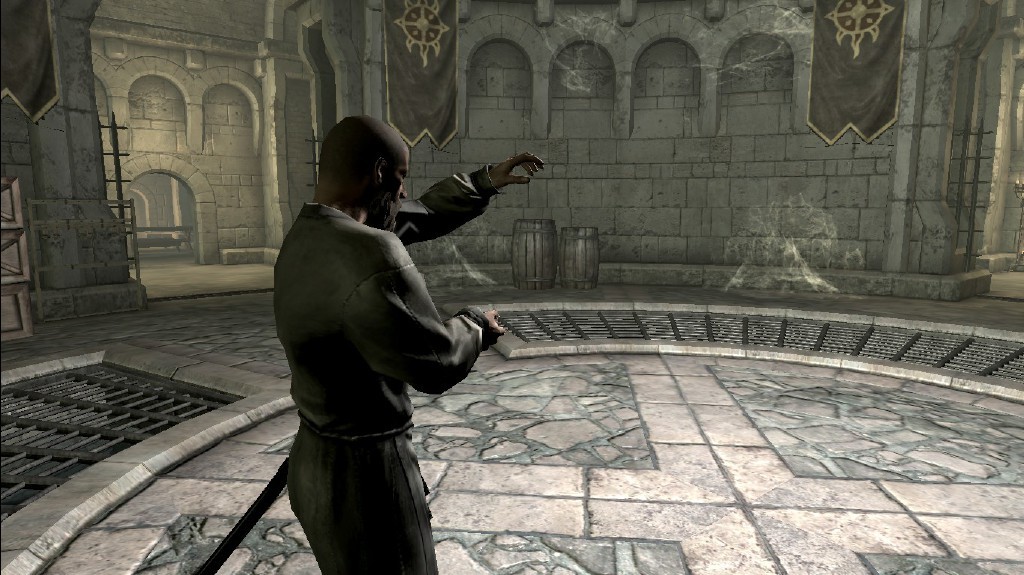 |
| Image posted by LizardBorn |
So that does it for my reading of religion within the Elder Scrolls! Thanks for reading!
No comments:
Post a Comment